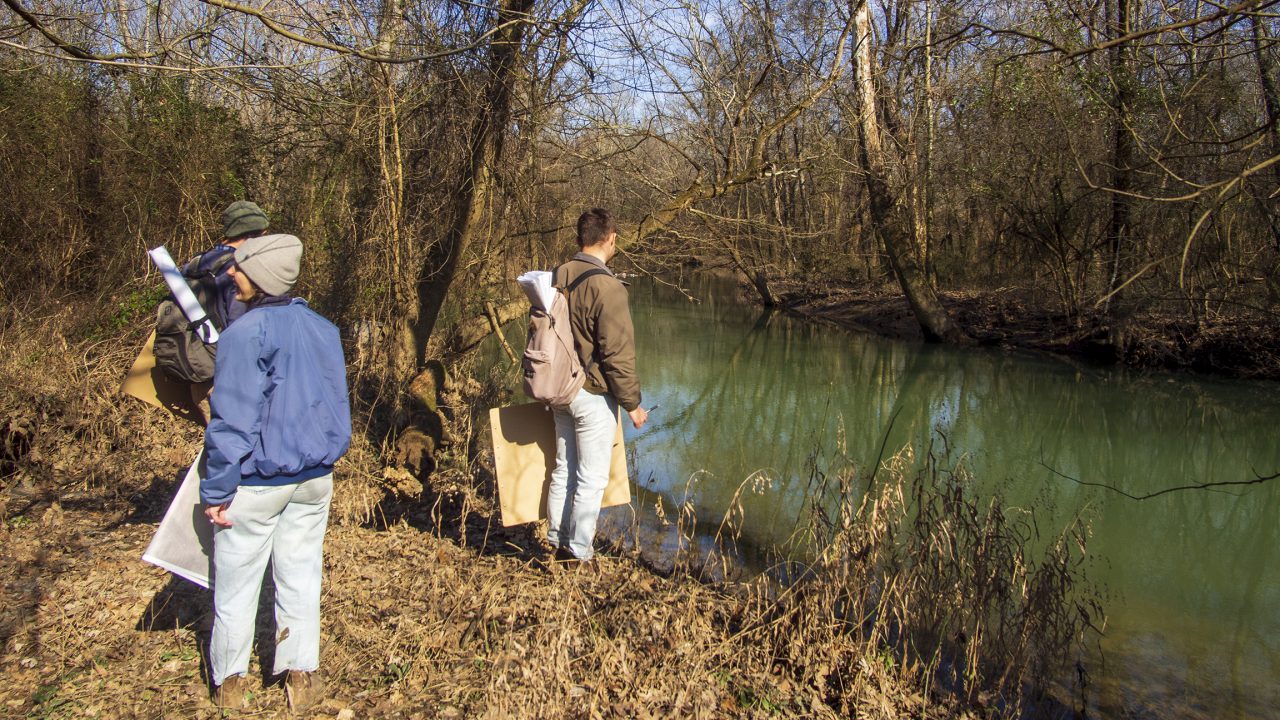Chattanooga Creek

Initiated Spring 2022
Faculty Rob Holmes
Students Taylor Chavers, Lily Dendy, Dustin Elston, Emily Gustafson, Sadie Gurkin Rob Johnson, Alex Wayland
In Spring of 2022, the Alabama Lab began working in Chattanooga, Tennessee in collaboration with a coalition of partners including the Chattanooga Design Studio, The Trust for Public Land, and the city of Chattanooga. Efforts were focused along Chattanooga Creek, particularly where it passes beside the neighborhood of Alton Park. While Alton Park was once an exclusively white community, by the mid-20th century White Flight and availability of industrial jobs to an emerging Black middle class led to it becoming one of the most vibrant Black neighborhoods in Chattanooga, home to Black professionals, skilled laborers, and business owners. The same industry that offered jobs to the community, though, spilt toxins like coal tar into the environment that made people sick and damaged the landscape. Portions of Chattanooga Creek, which empties into the Tennessee River just north of Alton Park, have been declared a Superfund site as a result. In the 1970s, as awareness of pollution’s impacts grew and the nation simultaneously experienced a recession, Alton Park’s industries laid off employees and closed facilities. Many residents who had the resources to move out of the neighborhood did. In recent decades, community members, advocates, and organizations like the non-profit Alton Park Development Corporation have sought to empower Alton Park residents and revitalize the neighborhood. The Trust for Public Land is working to convert a former rail line into the Alton Park Connector, which will link Alton Park and its Southside Community Park to the existing Tennessee Riverwalk and be part of an eventual 25-mile Chattanooga Greenway System. Our aim is to support our partners in this work for Alton Park, while exploring opportunities to expand the vision for what might be possible along Chattanooga Creek.
This project fits well into the larger objectives of the Alabama Lab, particularly our interest in investigating how landscape architecture can advocate with communities for undervalued landscapes and through landscapes for communities.
See more in:
Student Work